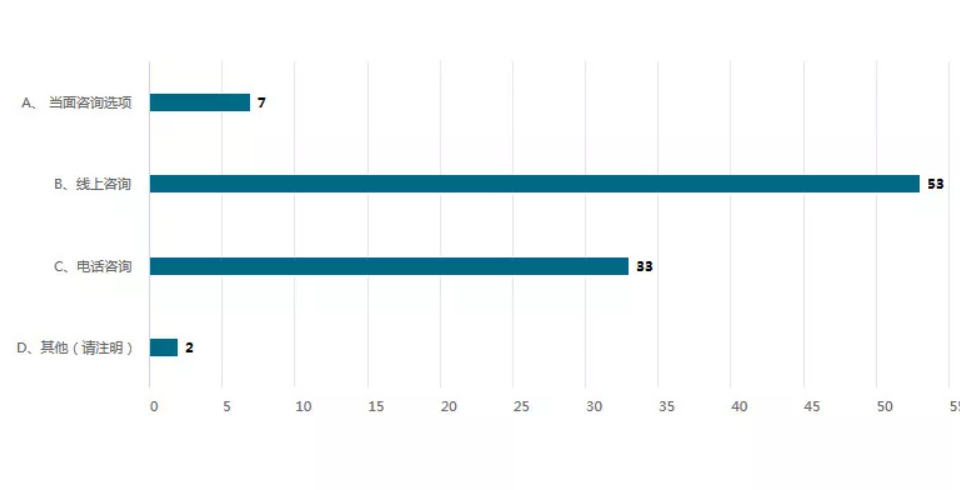Coronavirus’ impact on Chinese students and agents: 100 BOSSA/COSSA agencies surveyed
BOSSA & COSSA, China’s international education industry association, had its leadership survey approximately 100 of its Chinese education agencies members; from flagship corporations (New Oriental, AOJI, JJL, EIC) to small-medium enterprises, private consultants, language schools, international departments of schools, and others.
With China being the leading country of origin of students abroad (662,100 in 2018) the Coranavirus, also known as the Wuhan Virus or COViD-19, is especially impacting the Chinese international education sector.
In this questionnaire survey, BOSSA conducted a detailed investigation on response measures, most troubling findings and needs of desired help and support, from various overseas study abroad agencies facing the epidemic situation.
The majority of Chinese students use a study abroad intermediary (education agent) and BOSSA-COSSA agent members account for two-thirds of all Chinese students sent abroad.
Almost 83% of all agents are working remotely from home
The Coronavirus’ Affects on China’s Abroad Industry in 2020
The Beijing Overseas Study Service Industry Association (BOSSA) executive team initiated and conducted a sound, comprehensive industry-specific questionnaire survey with nearly one hundred different study abroad agencies and institutions in China’s international education industry. This research is the first time agencies were canvassed on the affects of the current situation, dilemmas, needs and future of their Chinese international students.
International Education is among the most affected industries by the outbreak
Since Wuhan’s closure on January 23rd, China is experiencing an unprecedented large-scale battle against the epidemic. With confidence in the future of the study abroad industry being challenged, BOSSA and its sub-association COSSA share informational resources to support and encourage its Chinese education agency members to help overcome difficulties caused by quarantines, travel bans, and overall disruption of business.
KEY FINDINGS
The epidemic has invariably caused 40% - 60% of students to be directly blocked in college application, visa and entry and exit.
66% of the agencies forecast a decline in students going abroad this year as a result.
64% of students won't change their original plans to study abroad, and 71% won't change their destination despite difficulties.
Agents indicated that studying abroad is a long-term plan: the overall trend of overseas enrollment will not change.
87% of Chinese education agencies and institutions have resumed work via telecommuting (83%) or in-office (3%).
83% of agents believe summer camp recruitment and preparation is affected in 2020.
Almost 30% of agencies reported students experiencing some form of discrimination, directly or indirectly, while currently abroad, causing prospective students to change their destinations according to their parents’ or counselors’ discretion
CHINESE AGENCY SURVEY RESULTS
1. Agencies’ current office status
Staffers, counselors are working
A. Remotely, online: 82.81%
B. In office: 3.12%
C. Not yet resumed: 12.50%
D. Unspecified: 1.56%
2. Are student consultations lower in number than in previous years?
A. Yes: 73.44%
B. No: 26.56%
4. # agencies with students experiencing the following application problems
A. Incomplete materials due to cancellation of standardized test: 35
B. Incomplete materials due to delayed school start: 28
C. Blocked travel mode: 39
D. Blocked entry and exit: 39
E. Blocked visa application: 38
F. Blocked admission: 8
G. Other factors: 3
6. Will students change their plan of going abroad due to the impact of the epidemic?
Yes: 35.94% No: 64.06%
3. What is your agency’s current consultation method?
A. In-person consultation: 7
B. Online consultation: 53
C. Telephone consultation: 33
D. Others: 2
(95 agents surveyed)
5. #agents reporting the following problems occurred for currently enrolled students abroad
A. Blocked visa application: 22
B. Blocked travel mode: 35
C. Blocked entry and exit from country: 43
D. Other: 7
7. Will the total number of students studying abroad decline this year?
Yes: 65.62% No: 34.38%
9. Have you received reports of discrimination against international students?
Yes: 29.69% No: 70.31%
8. Does the current epidemic affect (recruitment & preparation) of summer camps abroad
Yes: 82.81% No: 17.19%
10. Answer A to Question 6, which destination countries are changed:
A. Changed planned destination countries: 28.12%
*Changed planned destinations: United States, Australia, New Zealand, United Kingdom, Singapore or others.
B. Didn’t (disclose countries) answer this question: 71.88%
11. How do agency respond to the current epidemic situation
1. Work is generally carried out online ad done remotely
2. To strengthen the online management and structure, agents;
Pay close attention to official reports and (partner schools or) college’s information
actively communicate with the school/partners
delay the application process and admission time
and deliver timely feedback to students and senior counselors
3. Watch for situational changes and streamline the internal information management accordingly.
12. What is the most worrying issue for companies at present?
The epidemic continues developing, and long-term business can not be restored to normal
Chinese students applying abroad are blocked through various factors, including:
increased immigration restrictions;
affecting students’ planned enrollments in the fall 2020 semester
causing students to eventually need to postpone this year's study plan
3. Overall corporate burden, financial survival.
13. What support has the government given to agencies and students
Reassuring the population, helping eliminate panic, actively guiding with instructions on virus prevention to “win the war” against the epidemic as quickly as possible
Grant tax breaks and rent subsidies for financial burdens.
Effectively communicate with overseas governments, embassies and airlines of various countries to help students solve practical difficulties such as admission, immigration, or other issues.
The media should actively guide the public as much as possible.
14. What kinds of support are overseas universities giving partner agencies and students?
Postponing the application deadline and school starting date, providing online credit courses with conditions
Allowing applications to be submitted first, and then supplement the corresponding application materials later
Provide online admissions and interviews
Treat Chinese students fairly, Ensure non-discrimination measures
Give more enrollment promotion support to Chinese study abroad agencies.











